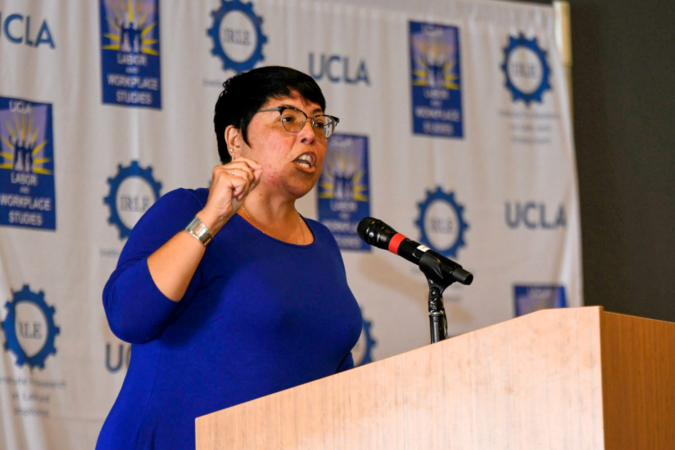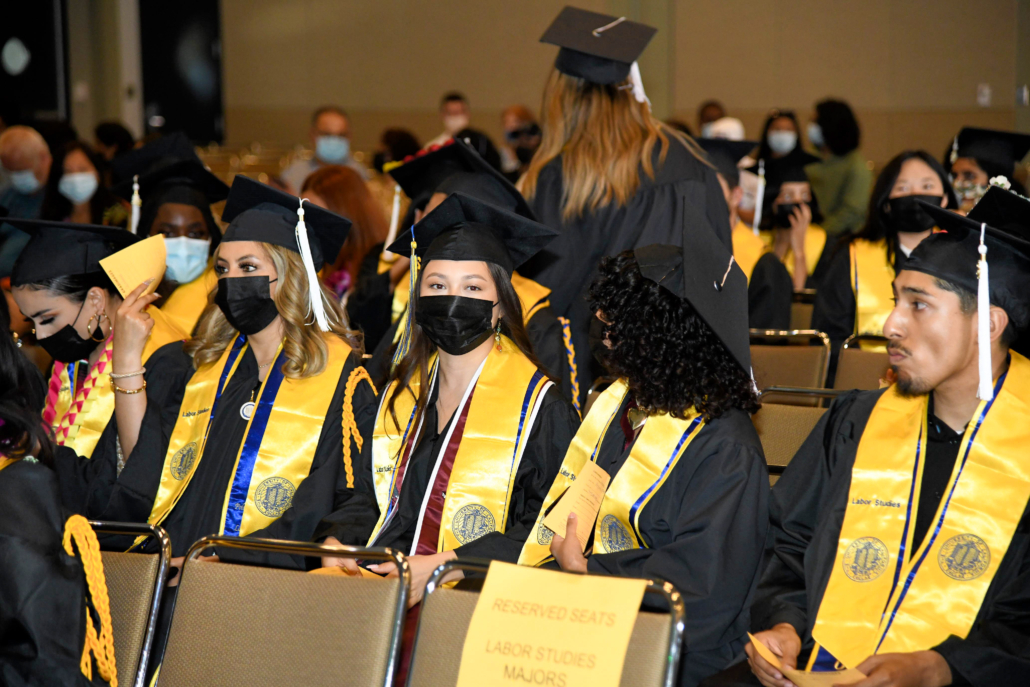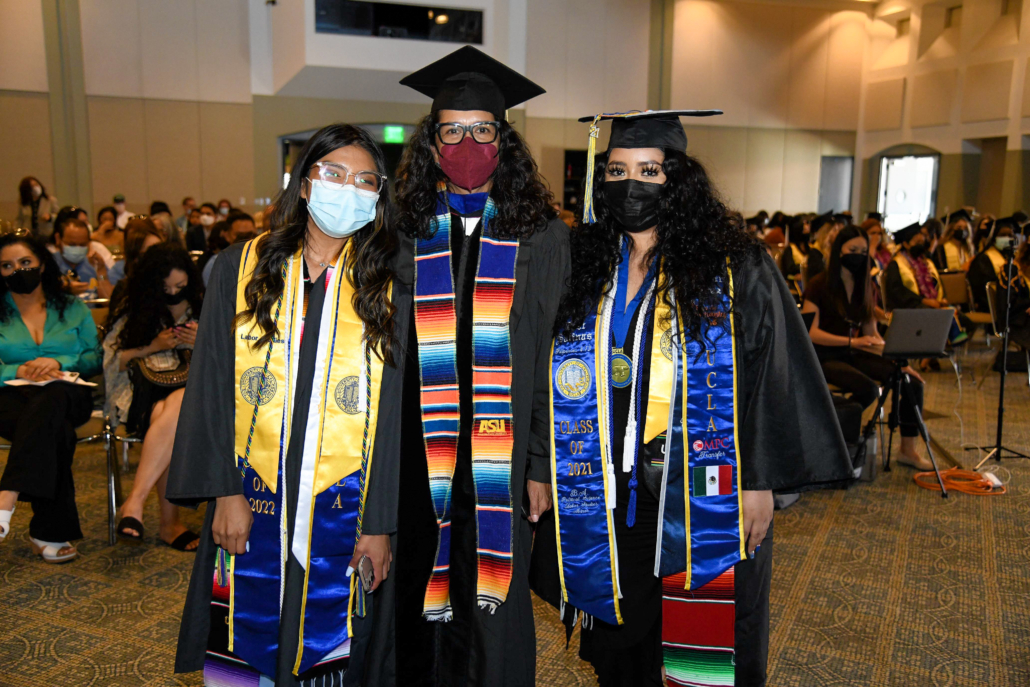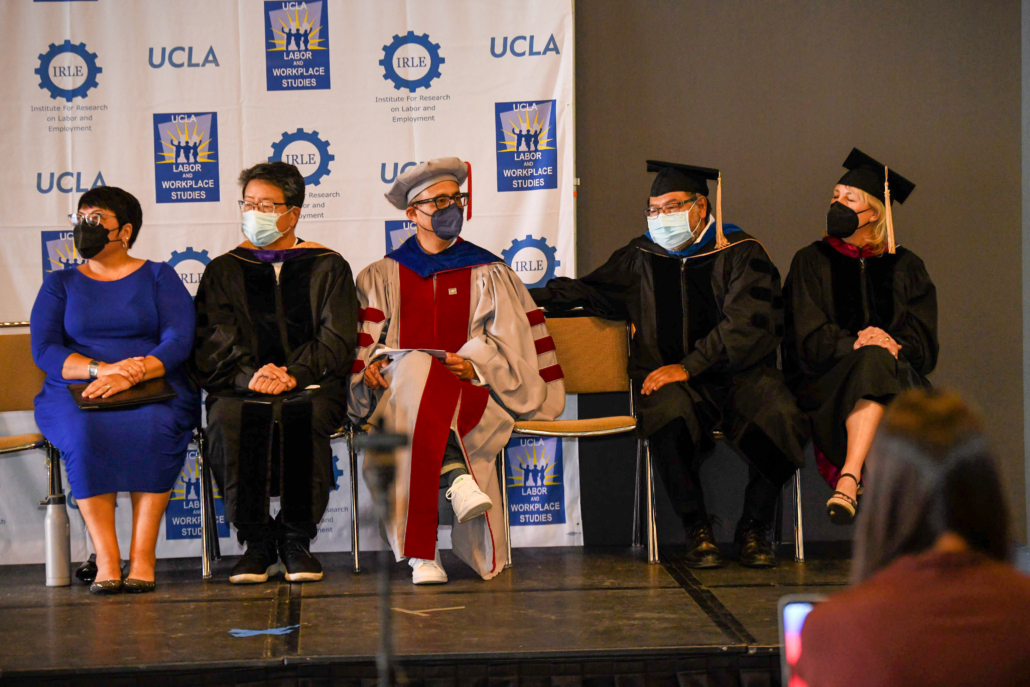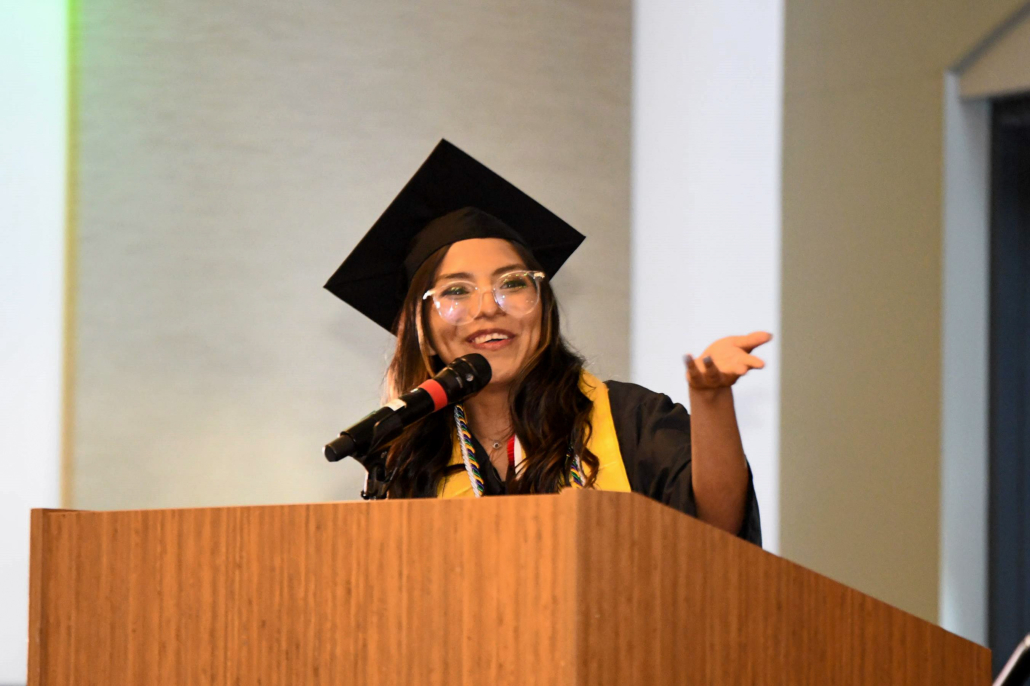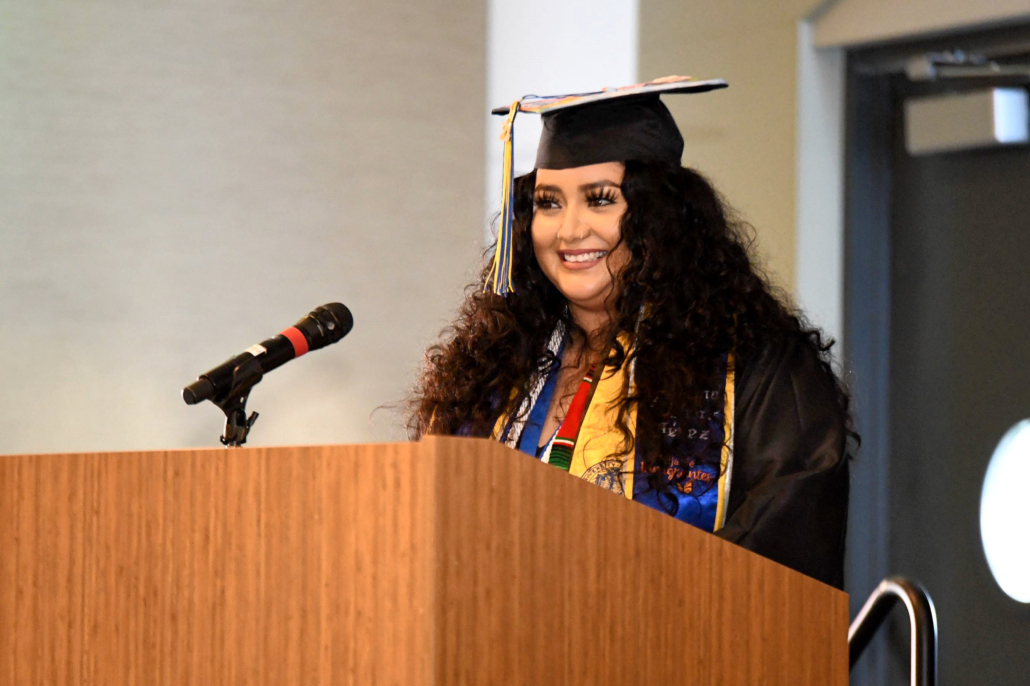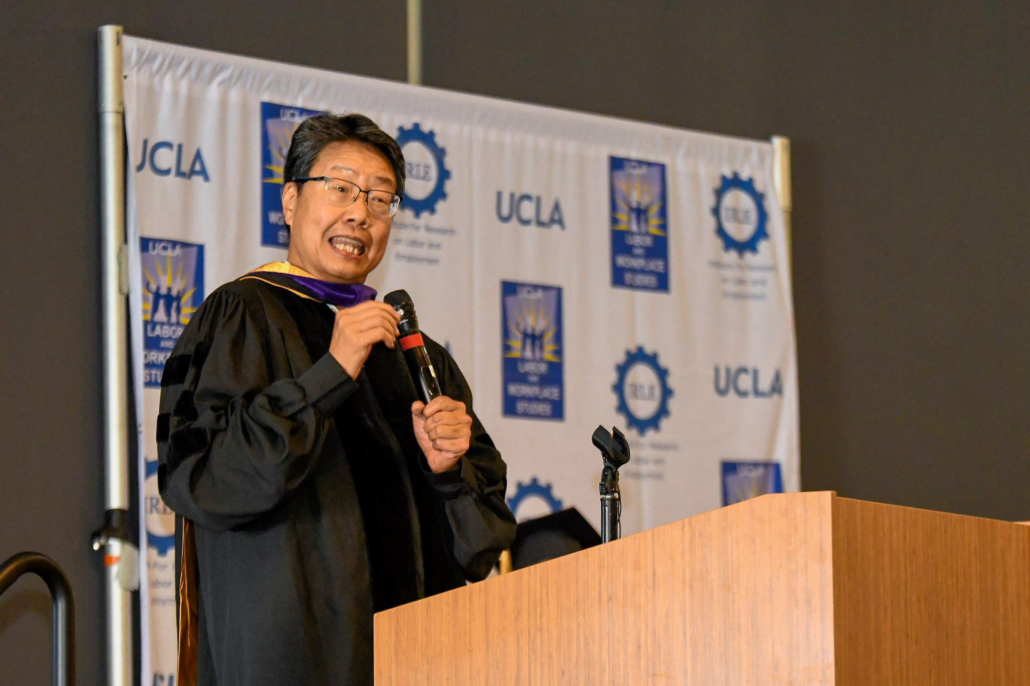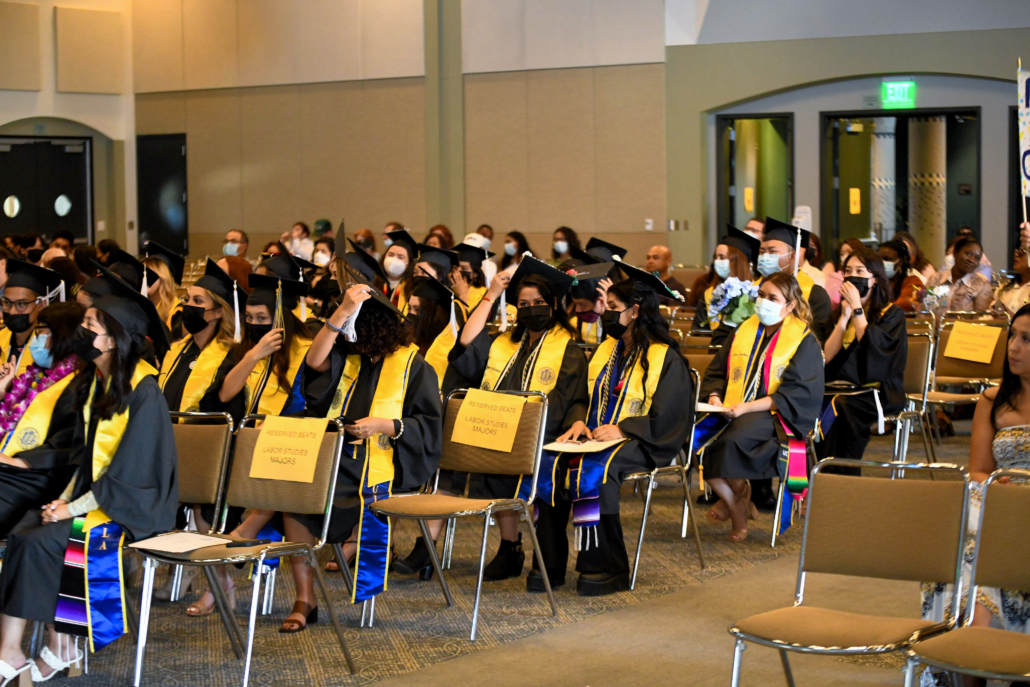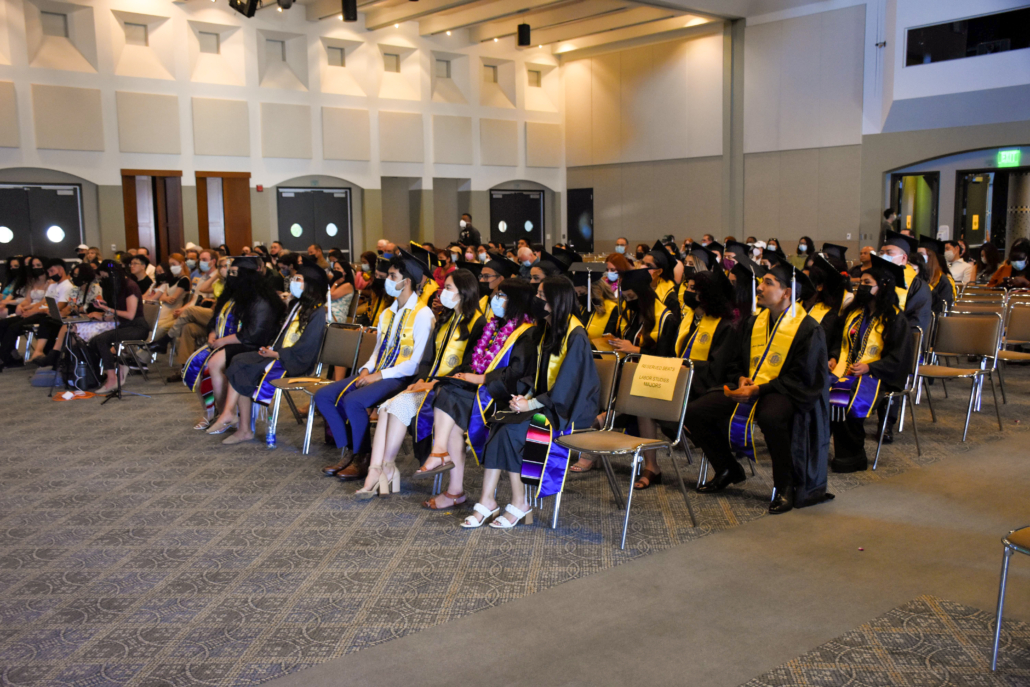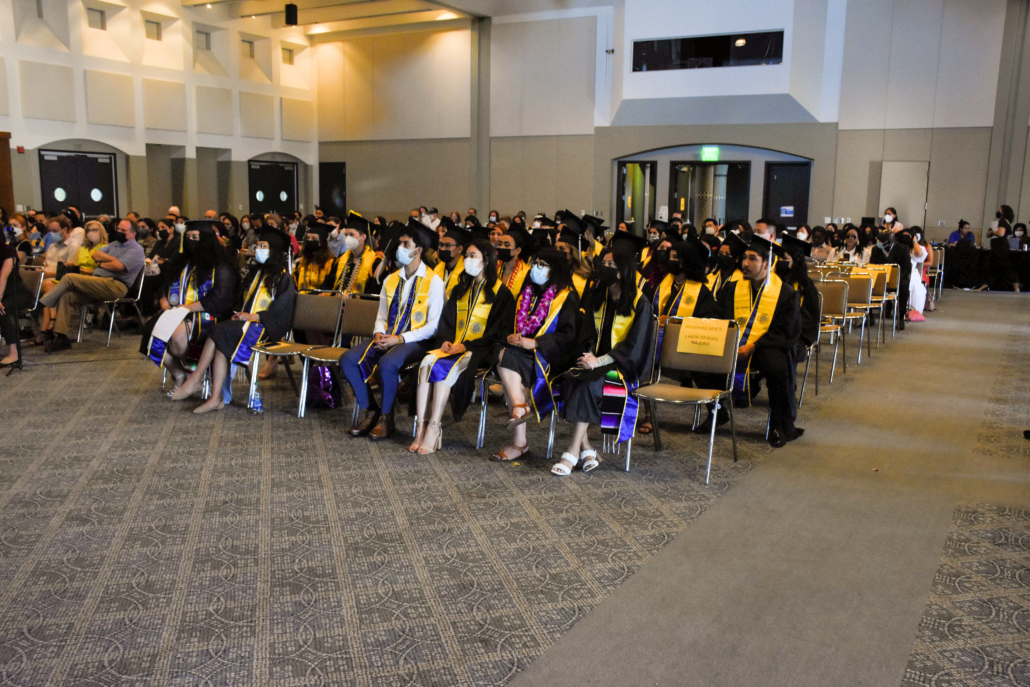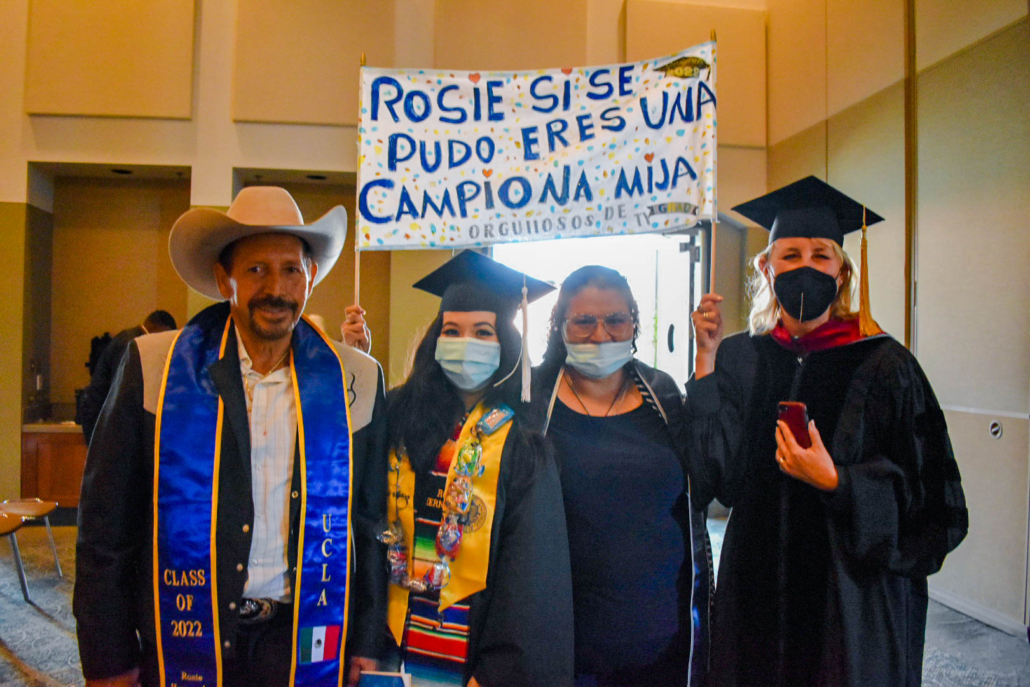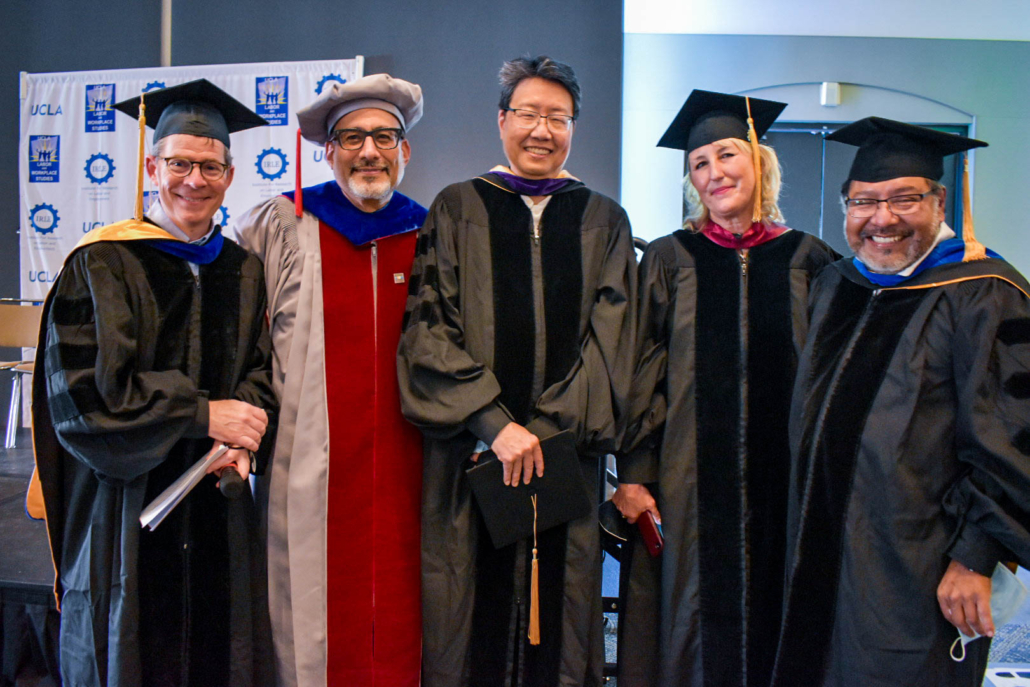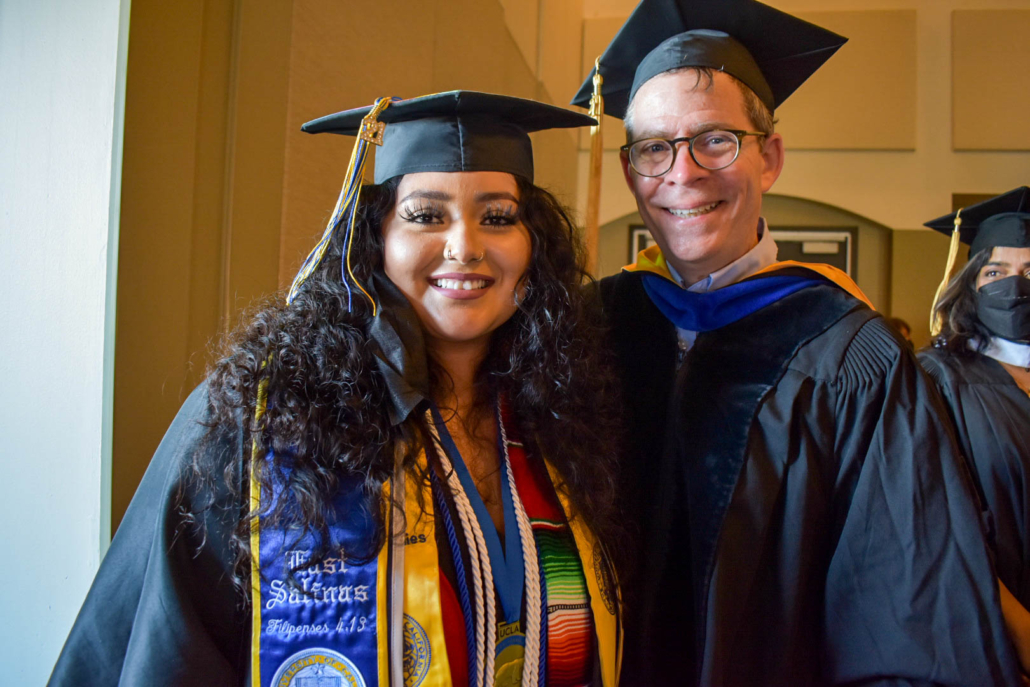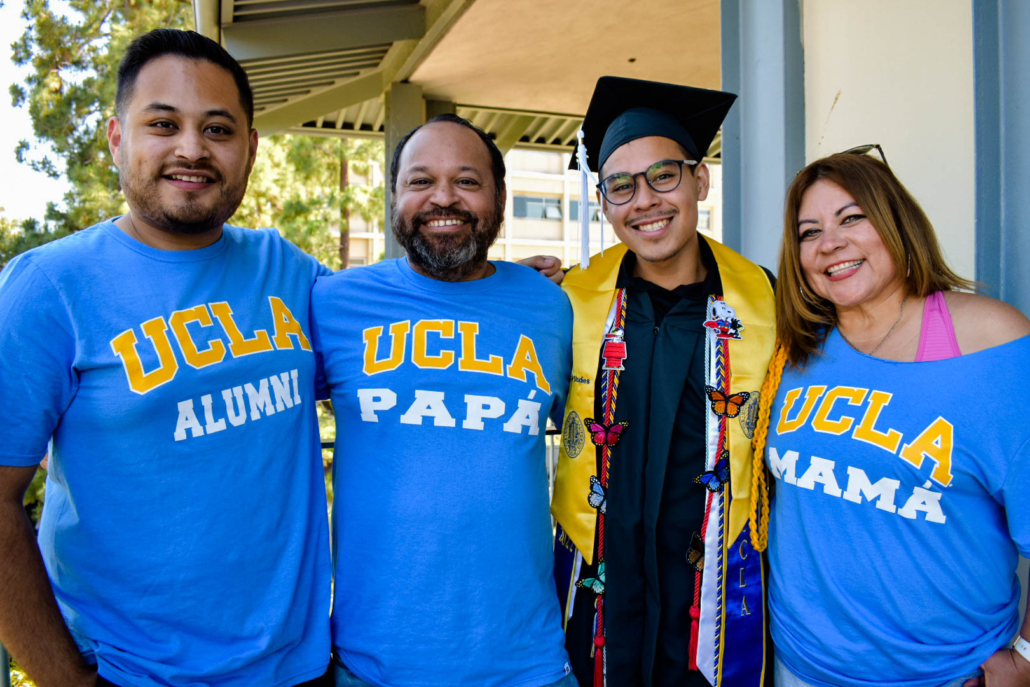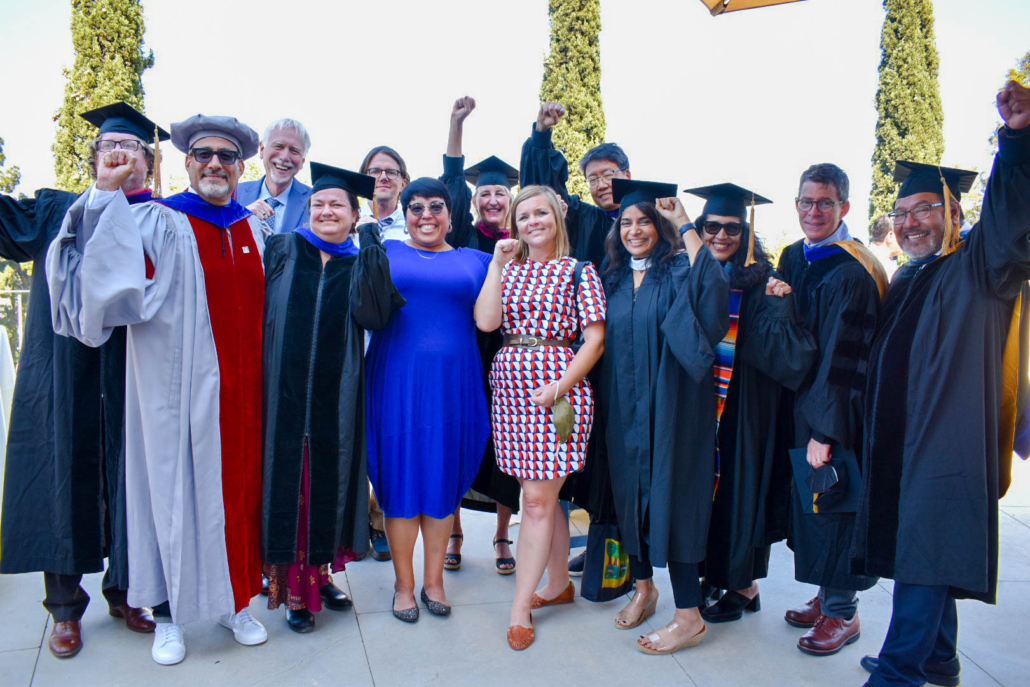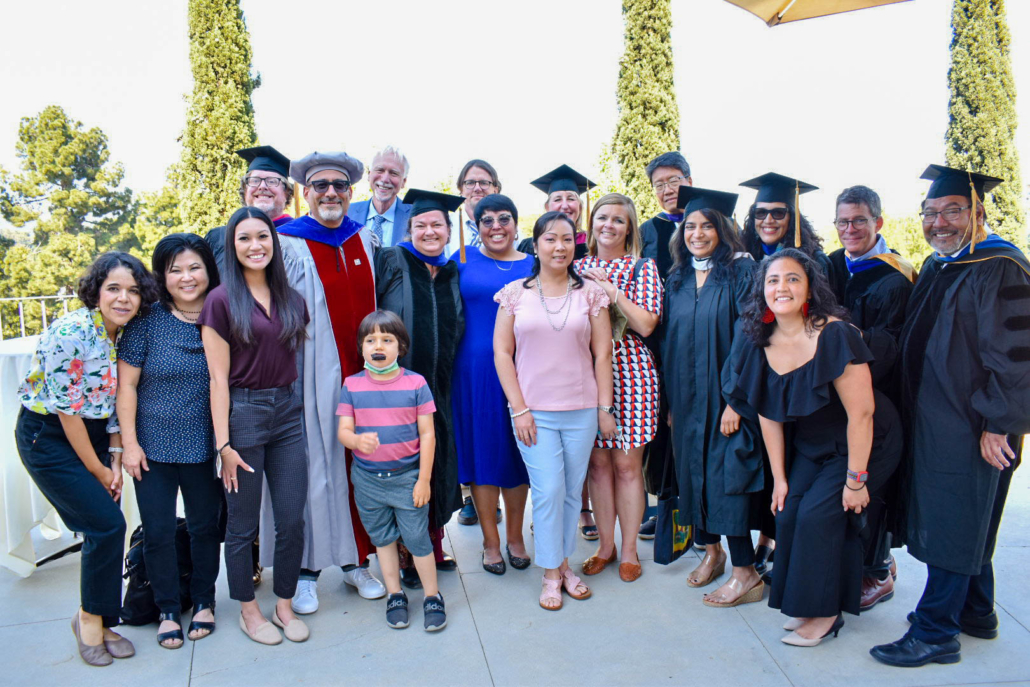California State Labor Commissioner urges UCLA labor studies graduates to help build a state that values working families
State Labor Commissioner Lilia García-Brower delivered the keynote address at an in-person ceremony at Covel Commons
Appointed by Governor Gavin Newsom in 2019, California State Labor Commissioner Lilia García-Brower, delivered a powerful keynote address to the Labor Studies class of 2022.
Citlalli Chávez-Nava | June 15, 2022
When California State Labor Commissioner Lilia García-Brower presented the commencement keynote address to the labor studies class of 2022 at UCLA over the weekend she talked about choices — about career decisions at a crucial moment for workers across the state.
“You chose a major that represents all the complexities of California’s backbone — labor, work, the investment by human beings of their mind, heart and body,” she said.
“You have this choice tomorrow and you have this choice each and every day. Where will you invest your precious labor, your heart, your mind, your body?” she asked. “Do not underestimate the significance of this big decision. Be aware of it. I encourage you to embrace it, own it. It is your power. And it is spectacular.”
García-Brower then urged students to consider a path aligned with the values she has advocated for during her entire career.
“Will you embrace the call to facilitate rebuilding, reforming, and reimagining California systems to value and support working families?” she asked.
As the State Labor Commissioner, García-Brower leads the top labor office in the state responsible for promoting economic justice through a robust enforcement of labor laws. Among other issues, her office works to combat wage theft, protect workers from retaliation, educate workers about their rights and to level the playing field for employers who are doing right by their workers.
“As is reflected in her career trajectory, Lilia builds bridges, she opens the door so new entities can access her offices and career paths,” said UCLA’s Institute for Research on Labor and Employment (IRLE) Director Abel Valenzuela Jr. as he read her introductory biography at the event.
During her powerful address, accented by numerous moments of audience applause, García-Brower also honored the investment and sacrifices made by the labor studies graduates and their families. She connected her own immigrant parents’ sacrifices, her first-generation college experience and working-class life story to the background shared by many in the crowd.
“Both my parents are laborers. My father, a factory worker and my mother a garment worker as well as other jobs. My paternal grandfather was a bracero,” she said. “Throughout my growing up [my father] held three jobs including a graveyard job, my mom held two jobs to provide for all of us.”
To close, García-Brower talked about her commitment to nurturing the next generation of young labor leaders. She reminded students that their newly acquired skills can form part of the solution the state needs.
“Given the catastrophic devastation of our times, the role of each of you,…our labor studies scholars, is more crucial than ever. We need human-centered thinkers and doers who will apply, implement, develop, design, break down barriers, and rebuild good jobs, policies and systems in education, health care, industry, science, law, and so much more. If it’s not you, then who? Your time is here, my friends, your time is now,” she said.
The celebration also featured student speeches delivered by students who are also leading the labor movement now and into the future.
Graduating student Valeria Coronado, a former garment worker herself, discussed the unsafe, exploitative conditions that plague garment factories in Los Angeles.
“This continued cycle of witnessing labor injustice, sparked within me, anger and discomfort. So I realized, this wasn’t something I wanted to be a part of. So I turned to education, to help me find the language, the tools to articulate these experiences, in demanding justice for workers.”
Coronado urged her classmates to bring their acquired knowledge back into the community.
“We need to revisit these lessons, bring what we’ve learned in the classroom and put it into practice, whether that’s creating education literature about worker rights, or having conversations with workers to learn about the challenges impacting their lives,” she said. “Because as I have learned as a scholar, every moment is an opportunity to organize.”
Hailing from Salinas, California, the second graduating student speaker, Yuliana Barrón Pérez embraced her hometown, the sacrifices of her family and her nontraditional academic journey to pursue her studies at UCLA.
“My community produces over half of the nation’s lettuce and 48% of all leafy greens. I often tell people proudly — my community feeds this nation,” she said.
Barrón Pérez discussed feeling out of place at UCLA before finding her home in labor studies. She also emphasized the importance of paying it forward.
“When you succeed in your lives, always make sure that you create space and opportunity for more people to do the same. Because if somebody asks me what I’m going to do when I make it to the top I’d say reach my hand down for the rest,” she said.
After two years of virtual celebrations amid COVID-19 restrictions, the in-person celebration for the Labor Studies graduates was especially meaningful for all in attendance. In total, the interdepartmental program conferred 40 bachelors degrees and 59 academic minors upon the labor studies class of 2022. The ceremony also included remarks delivered by Labor Studies Faculty Chair Tobias Higbie and Labor Center Director Kent Wong.
UCLA Labor Studies is an interdepartmental program housed at the IRLE, renowned for its commitment to engaged student learning in community worker settings, rigorous hands-on research and courses that explore some of the most pressing labor and social justice issues.

